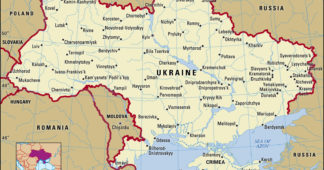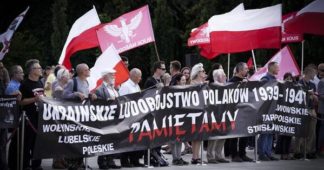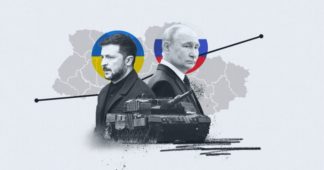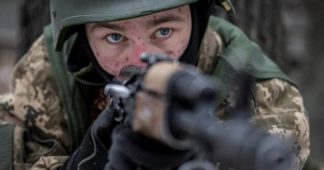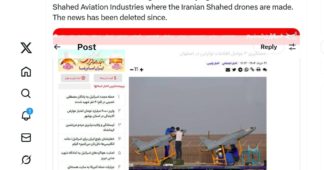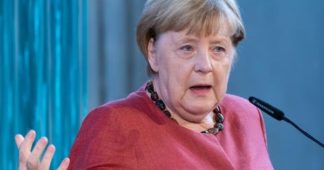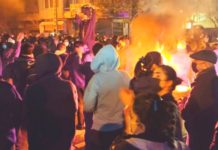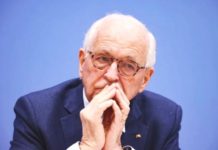Ada Petriczko Warsaw BIRN
Nov 11, 2025
Three years after an unprecedented refugee response, hate crimes against Ukrainians in Poland have doubled, while political rhetoric and coordinated disinformation is transforming the public discourse.
Shrinking public space
Among Ukrainians, self-censorship spreads faster than violence.
“We’re seeing a clear shift in public mood,” Miroslaw Skorka, head of the Association of Ukrainians in Poland, tells BIRN. “We’re getting signals that Ukrainian cultural events shouldn’t be held in open public spaces – that they should take place in churches or gym halls instead, because the city ‘can’t guarantee safety’. We’re hearing it from places where we’ve never had such issues, like Ketrzyn, Bartoszyce, Gizycko, even Przemysl.”
Speaking Ukrainian in public has become fraught. All Ukrainians interviewed for this story said they now refrain from using their language around strangers.
Daria, 39, a translator from Odesa who fled Ukraine in February 2022, describes her family’s gradual retreat into silence (like Nadia, she asked to be identified only by her first name to protect her privacy while discussing a sensitive subject). When the family first arrived in Poland, she recounts, they spoke Russian together, later switching to Ukrainian – a language their five-year-old daughter, Mariia, barely understood. In public, neither felt at ease. Speaking Russian “might be triggering for other Ukrainians”, Daria says, while Ukrainian “irritated Poles”.
“Gradually we were reduced to whispering in public places,” she recalls. “If we ever saw another family speaking with their lips only, we knew they were Ukrainians, too.”
Old wounds, new tensions
The true scale of hostility remains unclear. The Warsaw Metropolitan Police attribute the rise in reported cases to growing awareness among newcomers. “They now understand their rights and are less afraid to come forward,” says junior sergeant Pawel Chmura. “Thanks in part to the police’s outreach and prevention efforts, people know what steps to take in such situations.”
But Skorka believes the data only scratches the surface. “Many Ukrainians still avoid reporting violence or discrimination,” he says. “They fear contact with the police, worry about document checks, don’t know the legal language, or simply want to avoid complications.”
“I’ve stopped seeing the point in speaking out,” says Zoriana Varenia, a journalist and political scientist from Kyiv based in Warsaw. “Partly it’s fear – that something I say will be twisted, taken out of context, and I’ll have to defend myself for nothing. Many Ukrainians, like me, prefer to keep our heads down. We just don’t want to become targets.”
Nadia wasn’t planning to report the bus assault either. But on Monday, her husband’s colleagues who had been on the same bus told company management. The firm hired a lawyer, found witnesses and reported the case. The assailant – a preschool teacher – eventually apologised and, at Nadia’s request, donated 1,000 zloty (235 euros) to a fund supporting orphaned children.
For Szczecin-based therapist Katerina Zavizhenets, who runs the Mi Gracje association helping migrants adapt to new circumstances, this pattern is familiar. “Migrants now feel they must work twice as hard as locals to earn acceptance – be ‘perfect’, never complain,” she tells BIRN. “It’s a cruel calculus: they fled war and live with constant worry about home – and now they also feel like second-class citizens.”
Dr Lukasz Adamski, deputy director of the Mieroszewski Centre for Dialogue and a specialist in Polish-Ukrainian relations, sees several overlapping forces driving the shift. “What we’re seeing is fatigue – a weariness among some Poles with Ukrainians’ continued presence,” he says. “Poland is no longer monoethnic, and since Ukrainians are now the largest minority, that unease over social change is projected onto them.”
Beneath that lies a complex history, with “unresolved issues that still weigh on Polish-Ukrainian relations,” Adamski says. Chief amongst those are the World War II actions of the Ukrainian Insurgent Army (UPA) – a nationalist force led by Stepan Bandera that fought for Ukrainian independence but also carried out massacres of Polish civilians in the regions of Volhynia and Eastern Galicia. In Poland these events are remembered as ethnic cleansing, while in Ukraine the UPA is still honoured by some as heroes of the anti-Soviet resistance – a divide that continues to strain mutual understanding.
“The question of wartime exhumations seems to be moving forward, but the legacy of the UPA will remain a thorn,” Adamski admits.
Amplifying it all, he adds, is disinformation: “Polish social media is full of professional trolls and bots spreading rumours and falsehoods about Ukrainians.”
According to Piotr Kaszuwara, a Polish war correspondent based in Kyiv and co-founder of the PostPravda.Info website tracking the narratives first-hand, the scale of disinformation exploded during the presidential election campaign in May and June.
“There’s a set of narratives that repeat almost word for word,” Kaszuwara says. “After the drone incidents, there were posts like ‘how will we defend ourselves from Ukrainian rockets like in Przewodow?’ Then there are claims that ‘Ukrainians are taking from us’ – jobs, benefits, places at the doctor. You also see ‘this isn’t our war’ narrative. And the evergreen: ‘ingratitude’.”
The political accelerant
The slide from rhetoric to street-level hostility hasn’t happened in a vacuum.
The first studies documenting rising hostility appeared as early as autumn 2022. Sociologists Slawomir Sierakowski and Przemyslaw Sadura captured the trend in their report “Poles for Ukraine, but Against Ukrainians”. Just months after unprecedented solidarity, respondents across social groups were already expressing concern over whether the country’s welfare system could cope with the newly arrived refugees.
In early 2025, a survey led by Dr Robert Staniszewski at the University of Warsaw found that respondents who admitted losing sympathy towards Ukrainians often described them as “entitled”, “lacking gratitude” and “demanding social benefits” – despite economic data proving the contrary.
According to Dominika Sitnicka, a political journalist at OKO.press, those trends were confirmed by internal polling carried out by all the major parties ahead of the presidential election campaign.
“I remember conversations with politicians at the start of the campaign – everyone had already seen those numbers,” Sitnicka says. “They knew resentment toward Ukrainians was growing. Nobody wanted Russia to win the war and everyone still hated [Russian President Vladimir] Putin, but social fatigue and irritation had set in.”
As a result, candidates from the three dominant parties – the ruling liberal Civic Coalition (KO), the right-wing opposition Law and Justice (PiS) and the far-right Confederation (Konfederacja) decided to play the anti-Ukrainian card.
“Slawomir Mentzen from Confederation built his entire campaign on it, and his party gained in the polls,” Sitnicka says. “PiS chose Karol Nawrocki partly because he was associated with anti-Ukrainian views. From the outset, his rhetoric was radical, including claims that Poles should have priority access to healthcare over Ukrainians. It was, in effect, a call for apartheid.”
Few expected Rafal Trzaskowski, the KO candidate and early frontrunner, to echo similar themes. Yet in January, he declared that the 800+ child benefit should not apply to refugee families whose parents don’t work.
“Trzaskowski didn’t sound credible in that role,” Sitnicka observed. “But, off the record, KO politicians admitted they had to address the resentment somehow, and this was the most veiled way to do it.”
The rightward turn didn’t pay off. Nawrocki won on June 1.
“Trzaskowski’s campaign helped legitimise narratives that had until then come only from the far right, giving them a more ‘respectable’ face – and that strengthened the whole wave,” Skorka says.
“It was a political game played at people’s expense,” Sitnicka claims. “Watching the Sejm today – even the debates on extending the legal stay of Ukrainian refugees – you can see the entire political scene shifting to the right. PiS politicians, who once led the first wave of solidarity with Ukrainians, now talk about ‘entitled people’ and ‘supporting two nations’. Two years ago, only Confederation used that language; now it’s mainstream across the right.”
“Politicians like to think they’re simply following public emotions,” she concludes, “without realising they’re also shaping them.”
The consequences extend beyond domestic politics. “People forget that half of the war in Ukraine is information, not just tanks and planes,” Kaszuwara says. “So, when Polish politicians start using that kind of language, there are two casualties: it reinforces the Kremlin’s story, and it poisons our own public space, turning online hate into something people live and breathe offline.”
From words to blows
In September, tenants’ rights activist Zenobia Zaczek heard a man on a Warsaw bus berating an older Ukrainian woman with “a litany about Bandera, Volhynia, and getting out of Poland.” Zaczek rushed to confront him: “I said he didn’t represent all Poles, and had no right to decide who can live in our country.” The man head-butted her.
Police later identified him through CCTV footage, but the Ukrainian woman never came forward. “I don’t think I did anything exceptional,” Zaczek says. “What’s disturbing is that it was needed at all.”
Zavizhenets, the therapist from the Mi Gracje association, is collecting such stories: a taxi driver harassed at work; a photographer whose door was smashed in by a neighbour; a family attacked outside a shop after speaking Ukrainian to their child.
Language pressure is constant. “I tell mothers: talk to your children in the language of your heart,” Zavizhenets says. “Kids pick up shame and pretend – if a parent switches to a foreign language on the bus, the child senses that insecurity and learns to be smaller.” She sees it in classrooms too: “Teachers sometimes ‘Polonise’ names – Kasia, not Katia; Andrzej, not Andrii – instead of using the child’s real name.”
In some schools, parents have reported history lessons that turn into political sermons – for example, a teacher telling Ukrainian pupils that “Lviv is Poland”, then lecturing them about Bandera. This slow, quiet exclusion often hits children hardest. Daria watched her daughter Mariia shrink under accumulated slights. At her private preschool, other children rarely spoke to her. At playgrounds, Polish parents quietly steered their kids away.
The assimilation test
The vision of citizenship that Buca, spokesperson for the far-right Independence March movement, has reflects the tightening atmosphere. “Polish citizenship should be a kind of reward – a distinction for those who have truly integrated, lived here for years, and become part of local communities,” he says. “These procedures shouldn’t be quick or automatic. If someone wants to stay for good, they must also accept loyalty to the Polish national interest – you can’t serve two masters.”
Even those who tick every box feel the shift. Tetiana Klaban, who is 45, came to Poland from the Zhytomyr region in 2014 “to live, not to work” – a distinction she still emphasises. She settled in Police, a town in West Pomerania, with her two sons, built a career as a workplace-safety trainer, and joined the political party Polska 2050, drawn by what she saw as its openness and lack of anti-immigrant rhetoric.
By the time she ran in the local elections in 2024, she had already taken Polish citizenship – something she says she earned not as an expat worker, but as a resident committed to local life. Yet her candidacy made her a target. “For some people, it was shocking that a Ukrainian woman would want to enter politics,” she says.
One former acquaintance sent private messages accusing her of “making a political career while her people were dying in Ukraine.” Klaban was stunned: “I asked her, should I take my children, go back to Ukraine and die there? The answer was: yes.” Klaban later reported the messages to the woman’s superiors at a government office.
The abuse continued during the campaign. “People wrote: ‘we don’t mind someone like Shivan [Fate – the local leader of Syrian Kurdish origin], but a Ukrainian in politics – that’s too much’,” she recalls.
When she pushed back, arguing that citizens who live, pay taxes and contribute to their communities should have the same rights, she got a private message from a prominent far-right politician: “Don’t worry, we’ll soon change the law so it won’t be that easy for you Ukrainians to get citizenship.”
“People ask, are you Polish or Ukrainian? I tell them: I’m a human being,” Klaban says.
Despite what she calls a “normal life”, she admits that she no longer feels secure. “I came to Poland in 2014, to a different country,” she says. “Everything started changing before the last election.”
Her sons have Polish names and no trace of an accent; “you’d never guess,” she says. Nevertheless, she’s weighing leaving. “Now I tell the kids: don’t provoke, don’t speak Ukrainian or Russian on the bus, but I still feel people’s eyes. If, in 2027, PiS and Confederation take power together, I’ll leave – Norway, maybe Czechia. I won’t stay to see what happens next.”
‘Ungrateful’
Zoriana Varenia, the journalist based in Warsaw, was also attacked earlier this year, but she has no wish to revisit those events.
“I don’t want my voice to be only about harm,” she says. “My work is about the people and places that bring Poles and Ukrainians together.” She writes for Nova Polshcha, a portal published by the Mieroszewski Centre, focusing on stories and initiatives that strengthen Polish-Ukrainian dialogue.
When she fled Ukraine after the full-scale invasion, two Polish friends helped her establish herself in Warsaw: one offered clothes and helped her get a job; another lent her his flat, asking only that she cover the maintenance. Three years later, she’s still living there.
When Varenia read recent Mieroszewski Centre reports documenting the deterioration in bilateral relations, what stuck with her was one of the keywords that Poles most often associated with Ukrainians: “ungrateful”.
Later that evening, she called her friend and landlord to thank him for all the help he’d given her since the war began. “He laughed and said I must be drunk,” she recalled. “It made me think that the people who label Ukrainians ungrateful are usually those who’ve never helped one.”
“There’s clear paternalism in how some Poles talk about Ukraine, a sense that Poland is the ‘more developed’ country that helps and is therefore owed deference,” Zenobia Zaczek, the activist, says. “It’s a post-colonial reflex rooted in an unworked-through feudal legacy, where the ‘landlord’ has all the rights and the ‘tenant’ should just be grateful.”
Integration, argues University of Warsaw sociologist Kseniya Homel, is a two-way street. “It should never be understood as migrants simply adapting to the host society. It’s a process that also requires the receiving community to build cultural and communication competences. Only then can integration strengthen the social fabric rather than reproduce inequality,” she says.
Adamski thinks real change would require more than incremental policy shifts. “What’s needed is a radical reform of education so that young Poles learn to think critically and resist disinformation,” he says. “But beyond that, we need a cross-party consensus on Ukraine – an agreement that issues of support and memory shouldn’t be used as weapons in domestic politics. That’s why I’m a cautious pessimist – real progress would require raising the quality of our democracy itself.”
For some families, the calculation has already been made. “I watched my daughter shrink into this little insecure creature who kept apologising for everything – and that broke my heart,” recounts Daria.
In July 2023, the family moved to Calgary in Canada. “What was liberating was that we were treated as equals [here],” she says. “Not as victims of war, not as those who had taken over someone’s cities – just as newcomers starting over.”
.
We remind our readers that publication of articles on our site does not mean that we agree with what is written. Our policy is to publish anything which we consider of interest, so as to assist our readers in forming their opinions. Sometimes we even publish articles with which we totally disagree, since we believe it is important for our readers to be informed on as wide a spectrum of views as possible.
